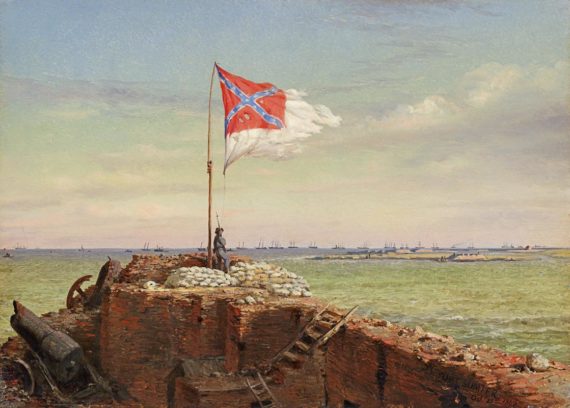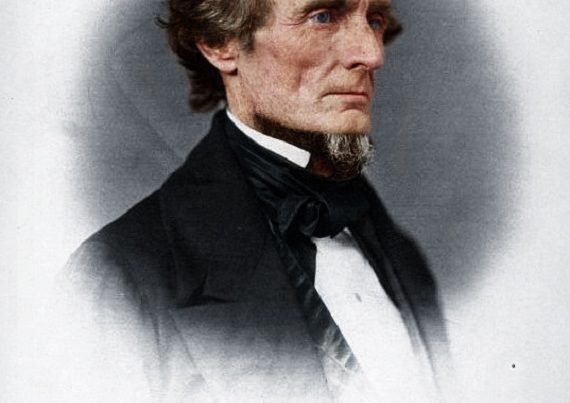
The solution offered by Mr Vivek Ramaswamy to the destructive ideology of the Woke Social Justice Warriors could not be stranger:
The antidote isn’t to fight wokeness directly. It can’t be, because that’s a losing battle. The true solution is to gradually rebuild a vision for shared American identity that is so deep and so powerful that it dilutes wokeism to irrelevance, one that no longer leaves us susceptible to being divided by corporate elites for their own gain.
The problem with this is that there is not and cannot be a ‘shared American identity’ that is ‘deep and powerful’ because the modern American creed (itself an updated form of the Pilgrim-Yankee worldview of yesteryear) is predicated on exactly the opposite principle: To be an ‘American’ today means precisely to be baptized into the cult of individualism; to cut off one’s roots in order to begin a new life here in the ‘promised land’; to forget the past, with its customs and other burdens, all of which are hindrances to personal self-fulfilment; to focus solely on creating a future full of material comforts.
Such a belief and its attendant way of living, full of centripetal forces, is unable to oppose the forward march of Woke revolutionaries. They will easily shatter whatever weak resistance these Hillsdale College/National Review-type ‘American nationalists’ offer up: A collection of rootless, atomized, self-interested individuals is no match for an ideologically united collective full of fire for their utopian vision.
One may go a step further and say that the SJWs are merely the latest iteration of New England progressives, beginning with the Pilgrim Gnostics and on to the more secularized and/or apostate Yankees with their many isms – abolitionism, communism, feminism, prohibitionism, Shakerism, Mormonism, etc. Thus, what we are seeing is the Yankee ideology devouring itself: Those who hold to the earlier, mid-19th century Lincolnian version (Hillsdale, talk radio, Victor Davis Hanson, Fox News, etc.) are at war with the current Woke iteration.
The South stands aloof from deracinated Yankee Americanism. She began not as a project to build something ‘new’ (the infamous New England City on a Hill) but as an effort of Englishmen to continue the rural life they knew, the only difference being their ability to advance a little financially. This is why so many ‘old’ things have survived here at the South: the architecture of the English manor house and the Celtic cabin, as well as classical Greek and Roman architecture; classical literature; the African banjo; the Bible and Saints’ Days; quilting and basket-weaving; and so forth.
But Dixie cannot at all afford to be complacent while the infighting between the elder and younger branches of the Yankee family tree continues on. The South is still at risk from them in many ways: directly, for she remains the declared enemy of both, the retrograde force (in their minds) inhibiting their passage into earthly blessedness; and indirectly (i.e., collateral damage), from the effects of their ongoing war with one another on the Church, the economy, the physical fabric of our towns and cities, the farmers’ fields, etc.
It behooves us, then, to do what the South failed to do in the first War of Northern Aggression: to find enough unity to fend off our enemies. This unity is not simply a utilitarian necessity for the Southern way of life to survive and flourish; it is part of the high calling of all peoples. Konstantin Leontiev (who deserves to be read along with his Russian brethren Dostoevsky and Solzhenitsyn) writes, ‘ . . . the highest point of development, not only in organic bodies but in organic phenomena in general, is the highest degree of complexity, held together by a certain inner despotic unity’ (‘The Triune Process of Development’, Against the Current, George Reavey, trans., New York, Weybright and Talley, 1969, pgs. 148-9; italics in original).
If this appears to anyone to be at variance with Southern norms, it is essentially what Prof Richard Weaver says in Visions of Order:
There is at the heart of every culture a center of authority from which there proceed subtle and pervasive pressures upon us to conform and to repel the unlike as disruptive. . . .
At this center there lies a “tyrannizing image,” which draws everything toward itself. This image is the ideal of its excellence. . . . This is the sacred well of the culture from which inspiring waters like magnetic lines of force flow out and hold the various activities in a subservience of acknowledgment. Not to feel this magnetic pull toward identification and assimilation is to be outside the culture (Wilmington, Del., ISI Books, 2006, pgs. 11-12).
But how can we even begin to approach that lofty goal of a fully formed unity in diversity when Dixie’s best talent – pastors like Robert Jeffress of Dallas; senators, governors, etc., like Mike Johnson and John Kennedy of Louisiana, Daniel Cameron of Kentucky, Ron DeSantis of Florida, Mark Robinson of North Carolina; musicians, playwrights, and many others – go chasing after the power brokers of Washington City, Los Angeles, Chicago, and the rest like battered whores returning for more beatings from their abusive pimps?
We long for the day when they will instead stay home and, co-operating with one another, build up the Southern people and culture with all the love and strength they as Christians and kinsmen are capable of.
This July 4th, let the South do something meaningful on Independence Day. This July 4th, let the South turn away from the tired, worn-out, delusional boasting of Yankee civilization. This July 4th, let the South declare her independence from Yankee domination of all kinds.






Good Afternoon,
Mr. Garlington says “One may go a step further and say that the SJWs are merely the latest iteration of New England progressives, beginning with the Pilgrim Gnostics and on to the more secularized and/or apostate Yankees with their many isms – abolitionism, communism, feminism, prohibitionism, Shakerism, Mormonism, etc.”
Why was Mormonism included here? Have they done things counter to the South?
Thank you.